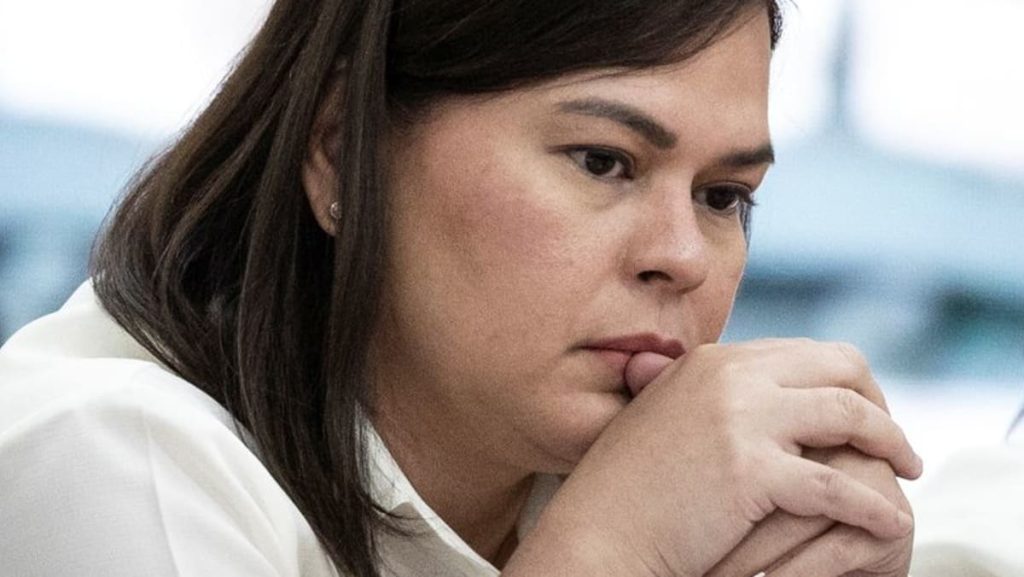The political landscape of the Philippines has been rocked by an escalating feud between Vice President Sara Duterte and President Ferdinand Marcos Jr., culminating in the filing of a third impeachment complaint against Duterte by a group of Catholic priests. This latest action follows two previous impeachment attempts initiated by activist coalitions, underscoring the deepening divisions within the country’s leadership and the growing discontent surrounding Duterte’s actions and pronouncements. The complaint accuses her of mismanaging public funds and, more dramatically, of plotting the assassination of President Marcos. This complex situation stems from a once-powerful alliance that has fractured, raising concerns about stability and governance within the Philippines.
Sara Duterte’s political trajectory has been closely intertwined with that of her father, former President Rodrigo Duterte. Initially considered a potential successor to her father’s presidency, she ultimately chose to support Marcos Jr.’s candidacy and ran alongside him as his vice-presidential candidate. This alliance, seemingly strategic and powerful at the time, has since deteriorated significantly, culminating in a very public and acrimonious exchange. Duterte’s outburst, including a veiled death threat against Marcos if she were to be assassinated, sparked controversy and raised serious questions about the nature of their relationship and the stability of the current administration. While Duterte later attempted to downplay her comments, the damage was done, further fueling the already simmering tensions.
The current impeachment complaint, filed by seven Catholic priests based in Manila, focuses on two key accusations: financial impropriety and the alleged assassination plot. The priests contend that Duterte engaged in “anomalous disbursements” of substantial public funds both during her tenure as Vice President and her previous role as the head of the Education Ministry. This accusation of financial mismanagement, combined with the highly sensitive allegation of plotting against the President, paints a picture of a Vice President embroiled in controversy and potentially acting against the interests of the state. The priests’ assertion that impeachment is the only recourse to address corruption at the highest levels of government underscores the gravity of the situation and their belief in the urgency of removing Duterte from office.
The accusation of financial misconduct relates to Duterte’s time as Education Secretary, a position she resigned from in June. The impeachment complaint alleges that she misused millions of dollars during her leadership of the department, further adding to the growing concerns about her handling of public funds. This financial impropriety allegation, coupled with the claim of an assassination plot against the President, forms the basis of the priests’ argument for her immediate removal from office. They argue that allowing her to continue serving as Vice President poses a significant threat to the stability and integrity of the government.
The political implications of this ongoing feud and the subsequent impeachment attempts are significant. The alliance between Duterte and Marcos was instrumental in their electoral victory, and the public breakdown of this partnership creates uncertainty about the future direction of the government. The accusations against Duterte, if substantiated, could lead to her removal from office, potentially triggering a political crisis and further destabilizing the country. Furthermore, the involvement of Catholic priests in filing the impeachment complaint adds a religious dimension to the conflict, potentially influencing public opinion and mobilizing support for or against Duterte.
The future of Philippine politics hangs in the balance as the impeachment process unfolds. The accusations against Vice President Duterte are serious and, if proven, could have profound consequences for her political career and the stability of the Marcos administration. The outcome of the impeachment proceedings will undoubtedly shape the political landscape of the Philippines and influence the direction of the country in the years to come. The ongoing feud between Duterte and Marcos, coupled with the allegations of financial mismanagement and the alleged assassination plot, has created a climate of uncertainty and distrust, raising serious questions about the future of governance in the Philippines. The calls for Duterte’s removal from office are growing louder, and the pressure on the government to address these concerns is mounting. The world will be watching closely as this political drama unfolds, with the potential for significant repercussions for the Philippines and its people.

